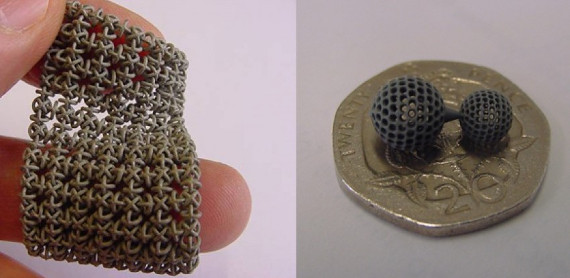Digital fabrication - getting behind the hype

Some commentators say manufacturing is on the brink of a revolution caused by digital fabrication - including processes known as ‘additive manufacturing’ or ’3D printing’ - with its promise of on-demand, mass personalisation and more localised, flexible and sustainable production.
These technologies have the potential to disrupt the organisation of manufacturing and the ways in which companies, both incumbents and new entrants, create and capture value - but there is a danger that digital fabrication in all its forms is becoming overhyped.
A cross-disciplinary approach
This new - and very timely - research considers the interconnected technological, commercial and policy issues that characterise the emergence of digital fabrication. The aim is to provide the academic, industrial and policymaking communities with responses to the most pressing questions, and a structure for ongoing debate and knowledge sharing.
A cross-disciplinary Cambridge team from across the Institute for Manufacturing, the Judge Business School, and the Department of Politics and International Studies will focus on three key questions:
• How will digital fabrication affect the manufacturing landscape?
• What impacts will this revolution have on manufacturing in the UK?
• How can UK firms become global leaders in this new age of digital manufacturing?
An emerging industry perspective
This project will apply a framework developed by CTM researchers and colleagues across IfM in earlier EPSRC-funded work on emerging industries. This industry emergence approach will concentrate on three key areas:
• Emergence: how did digital fabrication emerge? Identification of trends, patterns, barriers and enablers in the emergence and diffusion of digital fabrication to date.
• Business model disruptions: how is value captured from digital fabrication technology? How has value capture changed? What traditional/disruptive business models have they enabled?
• Scenarios: what future scenarios may result from the diffusion of digital fabrication technologies? What will be the possible associated business models, their barriers and enablers?
Creating a community
To support these three research stages the project team will help to connect the diverse members of the 'digital fabrication community', bringing together academics (from technology, management, economics and policy), practitioners (from start-ups to multinationals, and support service providers) and policymakers.
Events will be run throughout the project that will support the development of a national digital fabrication roadmap. An academic-industrial advisory group has been formed to help the project connect with relevant stakeholders.
The project will start in September 2013. For more information, please contact Simon Ford, Letizia Mortara or Tim Minshall.
To keep in touch with the project and digital fabrication trends visit this link.
Date published
31 July 2013










